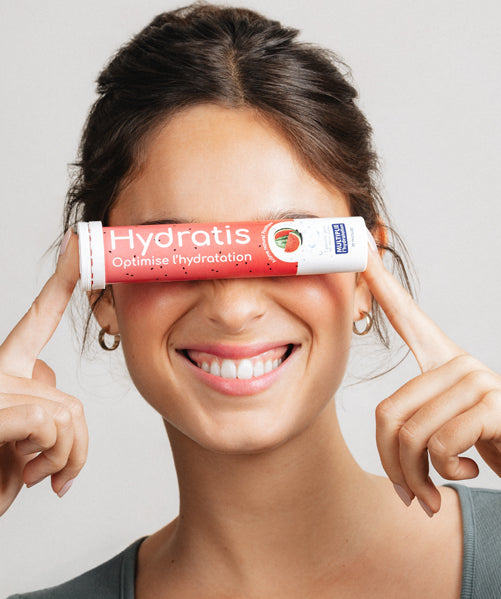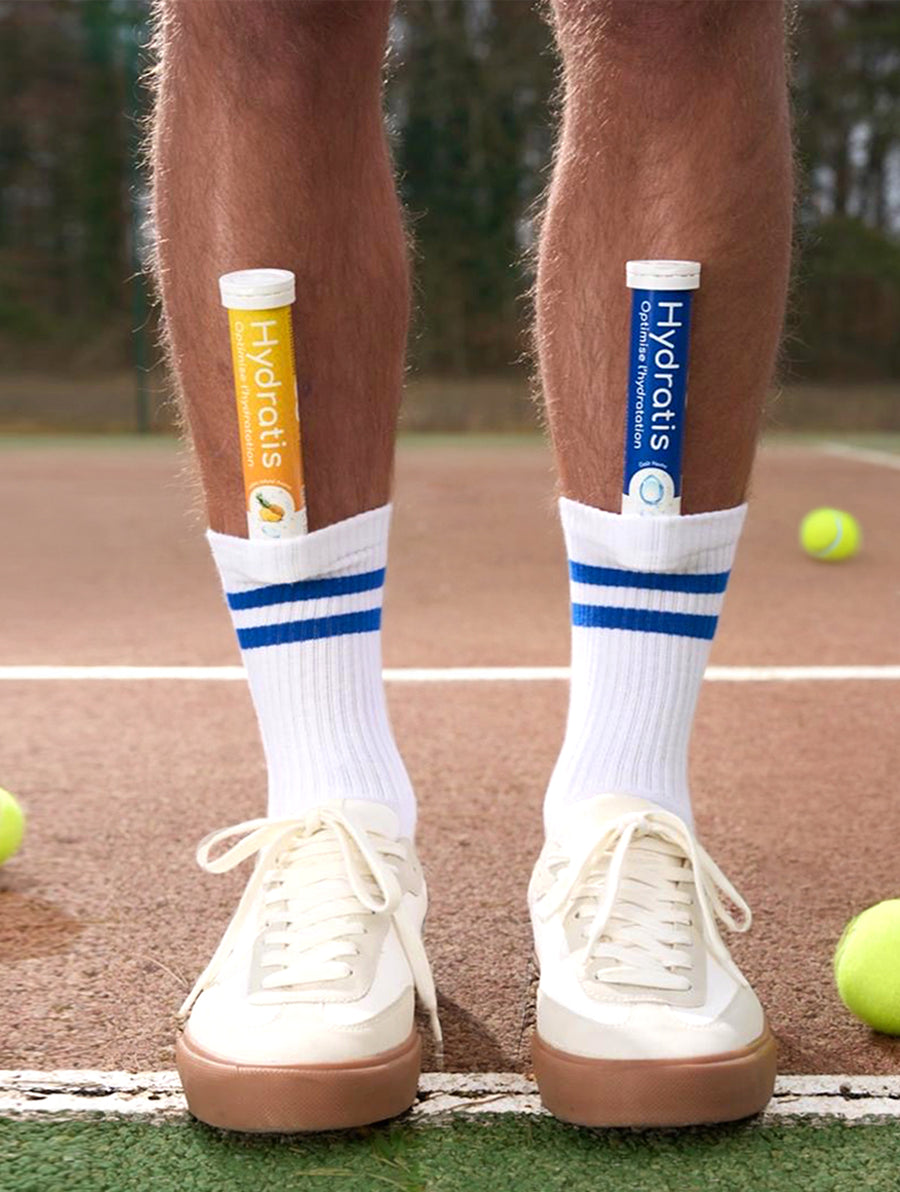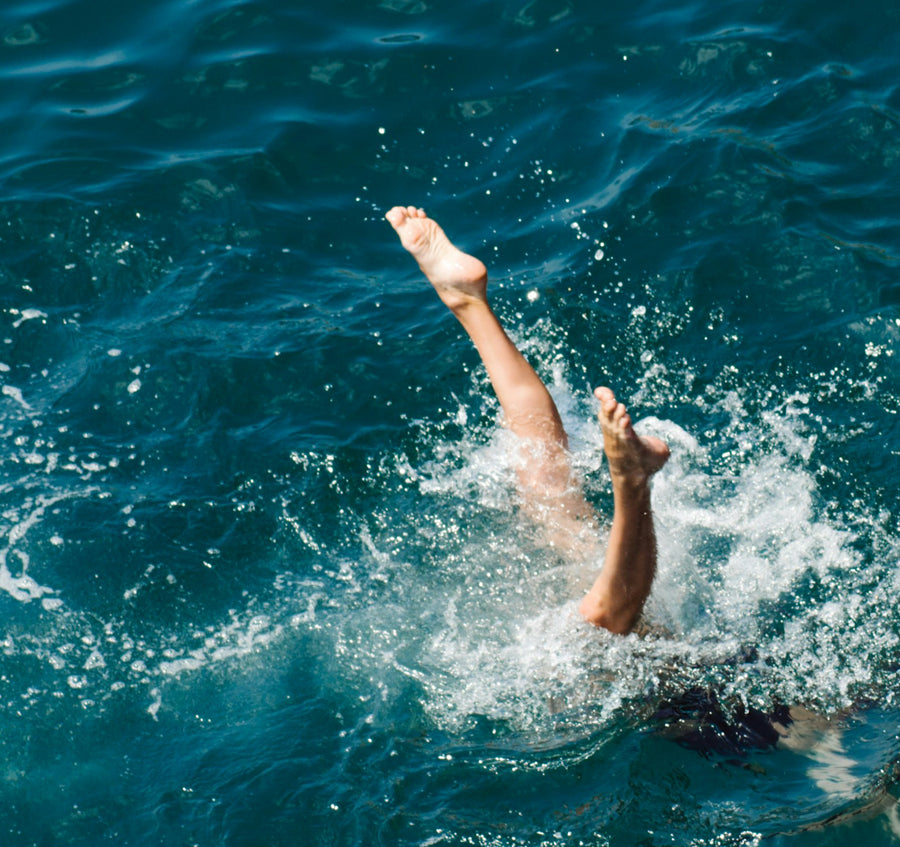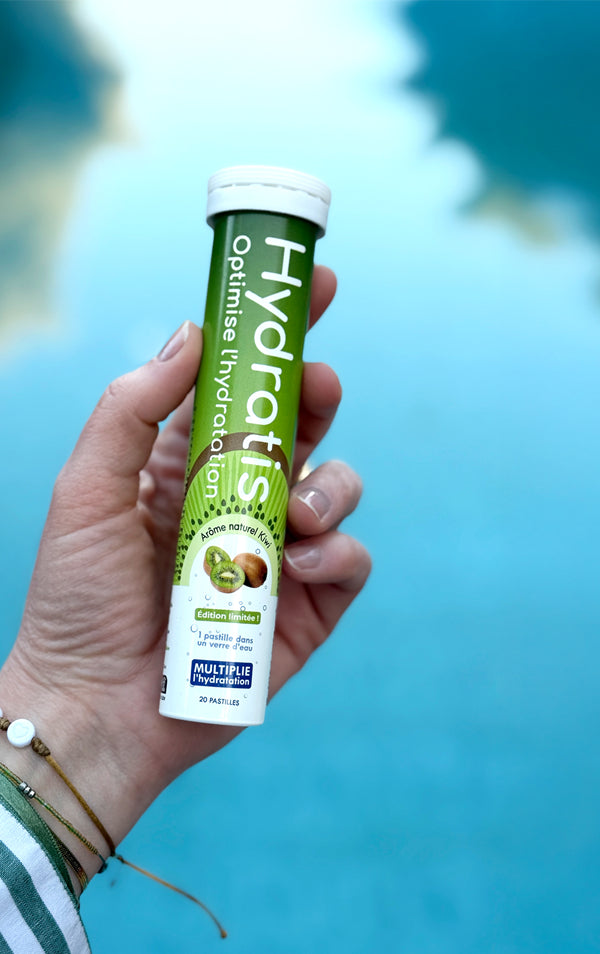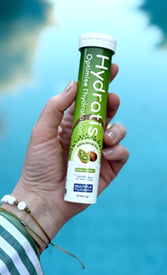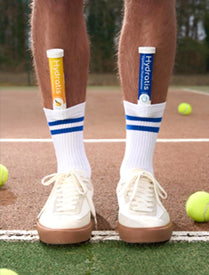Electrolytes are becoming increasingly popular, especially in the world of sports. Many experts recommend consuming electrolyte drinks during physical activity.
We hear about these drinks and their usefulness in sports, but what's the reality? In this article, we'll look at the benefits of these drinks in everyday life, as well as examine their composition.
1. What is an electrolyte drink?

An electrolyte drink is a drink rich in electrolytes containing sodium , potassium , and magnesium , among others. It may also contain trace minerals such as zinc and manganese . It is a drink composed primarily of water and minerals , which will allow for better hydration . Carbohydrates are also important in order to optimize hydration but also to provide the necessary energy.
Electrolyte drinks can help you stay hydrated during light to moderate exercise or in extreme heat, for example. After a loss of sweat, it's also important to restore your body's electrolyte balance , which is what these drinks can do.
2. Why electrolyte drinks are beneficial
2.1. An ally for hydration
When we sweat, our body loses not only water, but also various minerals present in our body such as sodium, potassium, and magnesium. They play a key role in maintaining water balance (between the amount of water and the concentration of minerals in our body).
A fluid imbalance can then cause a multitude of discomforts, such as the appearance of muscle cramps for example. Electrolyte drinks, by restoring this balance, will thus help prevent these complications and have optimal muscle recovery as well as a better general condition.
2.2 A response adapted to specific needs
These drinks are particularly suitable for meeting specific hydration needs, particularly in situations where dehydration may occur.
For athletes , hydration plays a vital role in performance and recovery . Did you know that 2% dehydration equates to a 20% decrease in physical and mental performance? During exercise, the body loses water and electrolytes through sweat, which can quickly lead to fluid imbalance and decreased performance.
Recovery shouldn't be neglected either! Proper rehydration will allow muscles to regenerate more easily and help reduce muscle soreness . These drinks are therefore particularly suitable for athletes, before, during and after exercise.
These drinks can also be beneficial for people with illnesses, or those prone to dehydration. Certain symptoms such as diarrhea or vomiting do cause dehydration , which can be significant and therefore requires rehydration of the body , to compensate for losses and rebuild lost mineral stores. This is the whole purpose of electrolyte drinks: to hydrate as well as possible and provide the essential minerals for your health.
Moreover, they will be of interest to the elderly . Indeed, the sensation of thirst diminishes with age.

Finally, these drinks are a good solution for people who don't enjoy plain water. Thanks to their subtle and pleasant aromas, they make hydration more enjoyable and encourage people to consume the recommended amount of water each day.
3. Some precautions to take
3.1. Can we drink it every day?
Electrolyte drinks are designed to replenish mineral losses and improve hydration. Therefore, it's not a bad idea to drink them every day, as long as you monitor the quantities.
Sedentary or inactive people have low electrolyte needs, so they can consume them in small amounts. Otherwise, a balanced diet of fruits and vegetables may be sufficient.
However, during situations that can lead to dehydration, such as sports, periods of extreme heat, diarrhea and vomiting, or even when traveling, the loss of electrolytes must be compensated. These drinks are then useful in maintaining the body's water balance.
Athletes, in particular, can benefit from these drinks during intense, long-term efforts or in intense climatic conditions (high heat) where they will sweat profusely. But it is important to remember that moderation is important! Excessive consumption of electrolytes can lead to adverse effects and would then become counterproductive. The main symptoms are nausea and intestinal problems, which will harm athletic performance and health.
3.2 Composition: be careful with certain ingredients
Before purchasing any product, it's important to check the ingredients. Of course, the same goes for electrolyte drinks.
Carbohydrates should be carefully monitored, especially if your physical activity is low or moderate, as calories can become an issue. However, a proportion of about 1% carbohydrates is necessary to improve your body's water absorption and therefore ensure optimal hydration.
Sorbitol is also a concern. Electrolytes containing sorbitol are not suitable for optimizing hydration. Sorbitol has a laxative effect! This means it draws water into your intestines and increases the volume of your stools, which is the opposite of hydration.
Be sure to check the ingredients when purchasing an electrolyte drink to avoid these minor problems.
4. Why choose Hydratis lozenges?
Hydratis is the ideal solution for a controlled intake of electrolytes.
You'll get an ideal intake of potassium, magnesium, and sodium, which are essential for your health, especially during physical activity. The lozenges also contain trace elements (zinc and manganese, both antioxidants) and a small amount of sugar to optimize your hydration.

Hydratis can be taken daily, at a rate of 2 to 5 lozenges per day depending on your profile and needs. If you are rather sedentary, one lozenge in the morning and one in the evening are useful for your well-being. On the other hand, for athletes or people living in a very hot environment, or even when traveling, you can simply put 2 lozenges in a 500 ml bottle to maintain good hydration. In this case, it is possible to go up to 5 lozenges per day depending on how you feel!
To ensure everyone can enjoy these benefits, Hydratis offers 10 flavors to suit everyone's tastes. Choose from wild berries, peach, pineapple, watermelon, and more.
5. Natural and practical alternatives for all
You can find simple and natural alternatives to electrolyte drinks.
There are several possibilities:
Coconut water is a great natural solution because it is rich in electrolytes like potassium, sodium, magnesium and is low in calories.
Diluted fruit juices contain natural sugars and vitamins. In fact, it's best to dilute fruit juices to avoid excessive sugar intake. Different fruit juices can be used as orange, apple, grape or pomegranate juices . You can choose them according to your needs and the energy you will need.
Make your own drinks . Simply mix water, add a pinch of salt, honey for an energy boost, and lemon juice, for example, to add flavor and vitamins.
A balanced diet can be enough to meet electrolyte needs (under normal conditions), provided that it includes foods rich in mineral salts. The foods to favor are citrus fruits and bananas for fruits, and for vegetables, spinach and beets are very good sources of electrolytes. The goal is to vary the sources of electrolytes, to have sodium, magnesium, calcium, and potassium.
Electrolytes play an important role in the proper functioning of our bodies on a daily basis. Consuming them in the right doses and tailored to your needs can significantly improve your hydration and well-being. It's important to adjust your intake based on your physical activity level, lifestyle, and specific situations that may lead to mineral loss.
Hydratis makes it easy for you with itshydrating tablets , designed for precise dosing and convenient use. Whether for daily use, after a workout , or during conditions that promote dehydration, these tablets offer an effective and simple solution.
Remember, the key is in balance, as Paracelsus said “everything is poison, nothing is poison, it is the dose that makes the poison!” Hydrate intelligently, listen to your body's needs and avoid excess. It's up to you to adopt the right hydration habits and take full advantage of the benefits of electrolytes!
Bibliography
Book: Fluid and Electrolyte Balance, Norma Metheny
Rath, M. (2012). Energy drinks: What is all the hype? The dangers of energy drink consumption. In Journal of the American Academy of Nurse Practitioners (Vol. 24, Issue 2, pp. 70-76). Wiley. https://doi.org/10.1111/j.1745-7599.2011.00689.x
